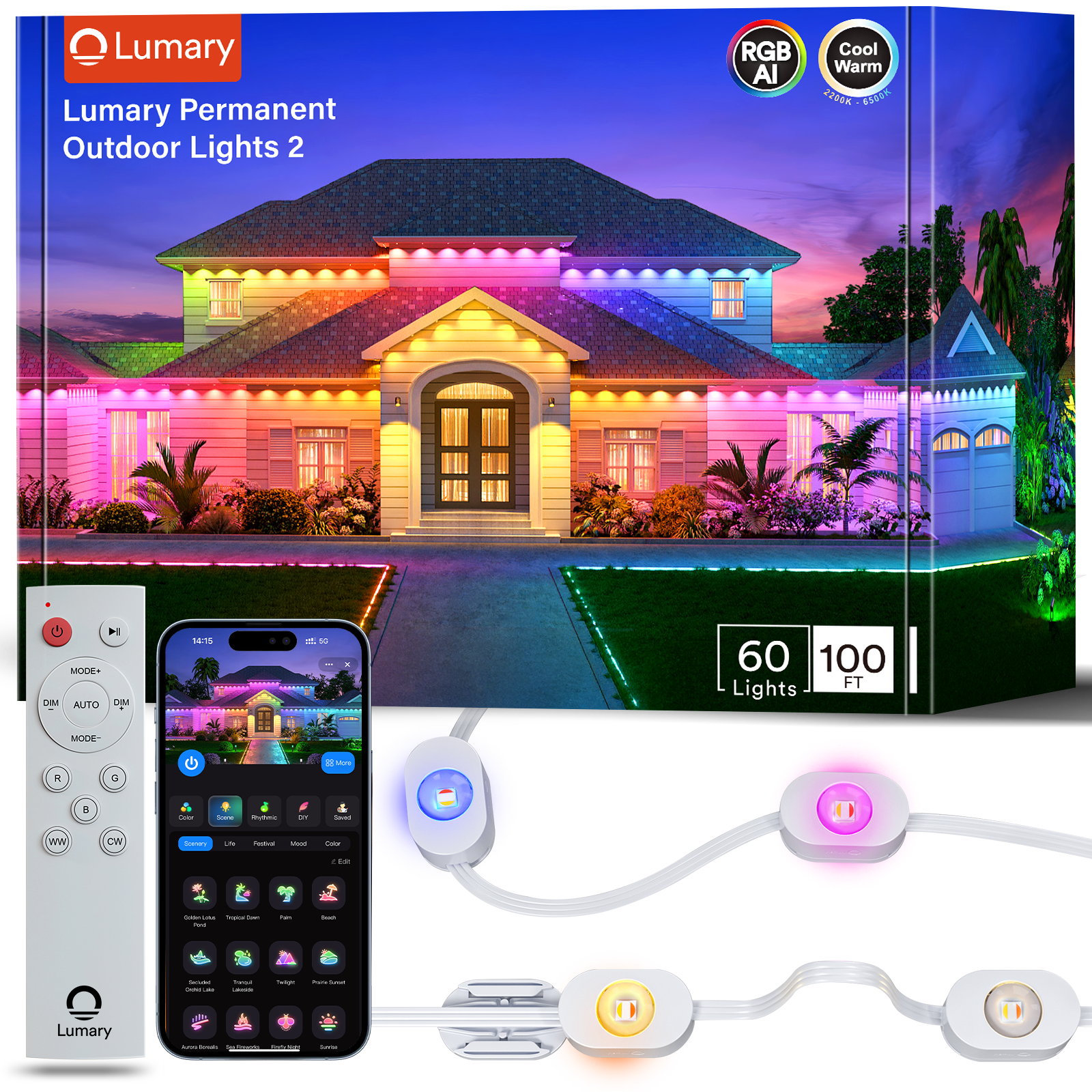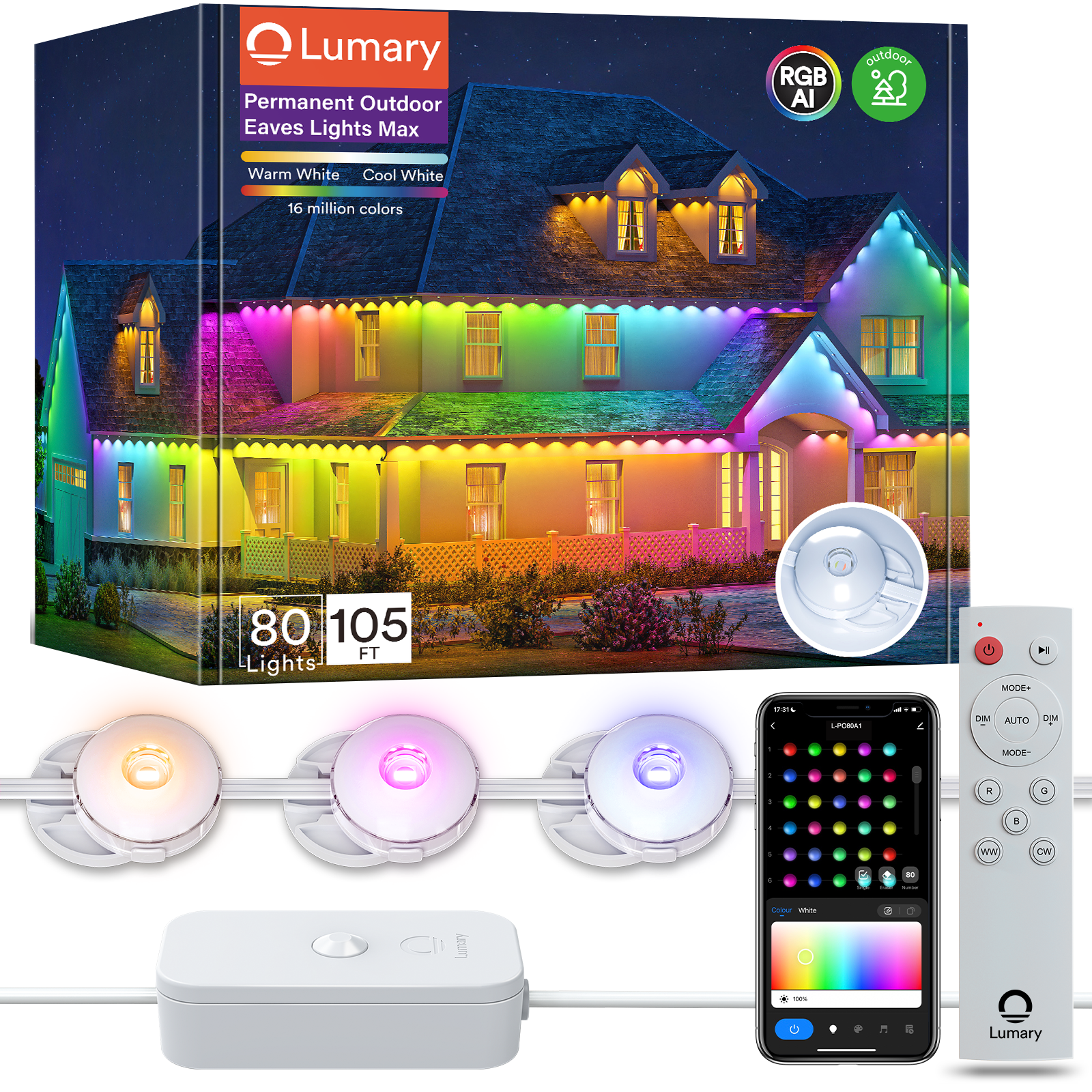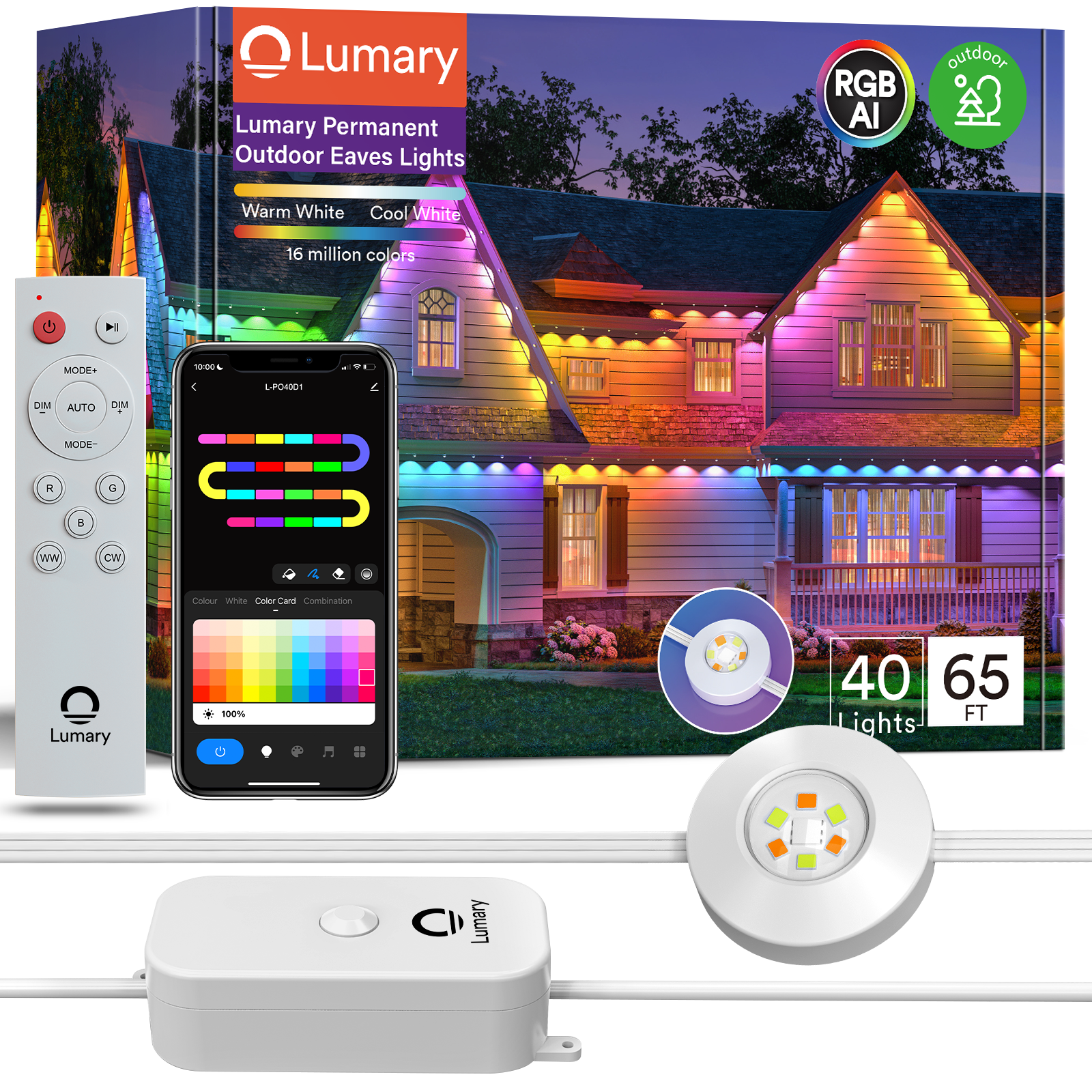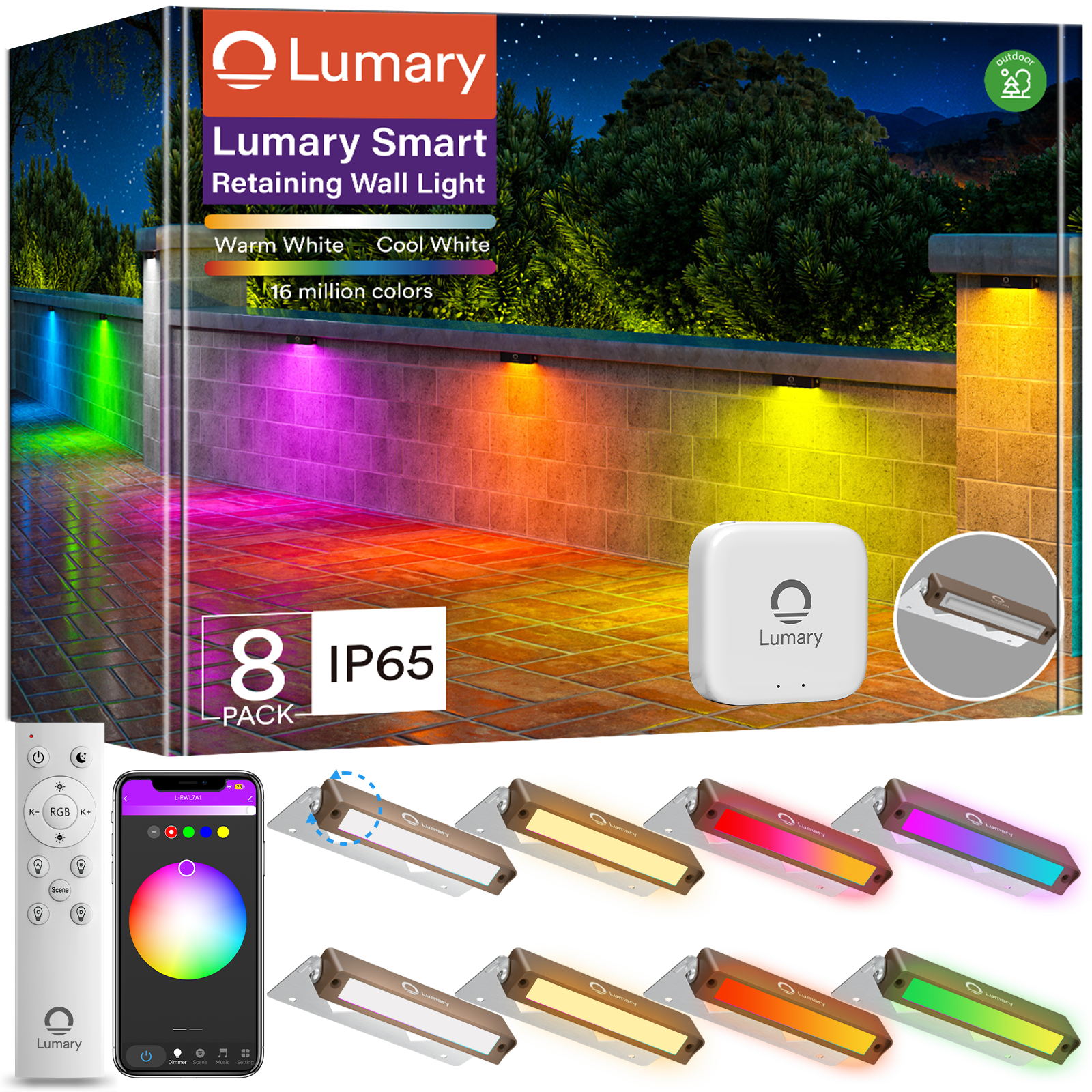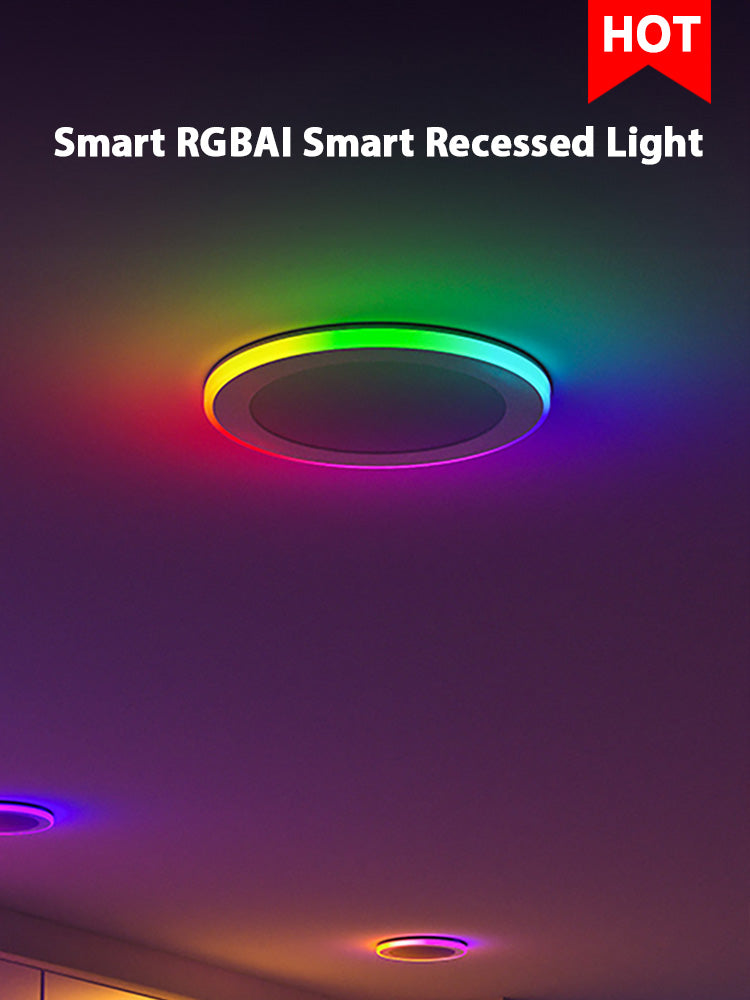Imagine turning your lights on or off with just a tap on your phone. Smart lighting makes this possible, offering you a seamless way to manage your home's ambiance. With options like smart bulbs, switches, and plugs, you can easily control your lighting setup. This technology not only enhances convenience but also contributes to energy savings. In fact, smart lighting systems can reduce energy consumption by up to 20%. As more people adopt these solutions, the market is expected to grow significantly, reaching $38.55 billion by 2028. Embrace the future with lights controlled by phone and enjoy a smarter, more efficient home.
Understanding Smart Lighting

What is Smart Lighting?
Smart lighting is a modern way to illuminate your home using technology. It allows you to control your lights with your smartphone, voice commands, or even through automation. You can adjust brightness, change colors, and set schedules. This technology makes it easy to create the perfect ambiance for any occasion. Imagine dimming the lights for a cozy movie night or brightening them for a lively party—all with just a tap or a voice command.
Popular Options and Alternatives
When it comes to smart lighting, you have several options to choose from. Here are two popular choices:
Philips Hue
Philips Hue is a well-known name in the smart lighting world. These bulbs and fixtures offer quality and versatility. You can control them with voice commands using Alexa or set up automations and schedules. They are dimmable from 5% to 100% brightness, making it easy to set the mood. Whether you want a soft glow or full brightness, Philips Hue has you covered.
Lumary RGBAI Smart Outdoor Lights Bar
For outdoor lighting, the Lumary RGBAI Smart Outdoor Lights Bar (4 Pack) is an excellent choice. These lights provide a warm 2200K white light effect, perfect for creating a cozy atmosphere. With a 120° beam angle, they illuminate walls up to 3 meters high. You can control them through the Lumary app, voice commands, or the included control box. They offer vivid color effects and extensive DIY options, allowing you to match your mood or event.
Cost Considerations
When considering smart lighting, it's important to think about the cost. Initial investment might seem high, but the benefits often outweigh the expenses. Smart bulbs and switches can reduce energy consumption, leading to long-term savings on your electricity bill. Plus, the convenience and customization options add value to your home. As you explore different products, consider your budget and the features that matter most to you.
Smart Bulbs
Features and Benefits
Smart bulbs offer a range of features that can transform your home lighting experience. You can adjust the brightness to suit your mood or activity. Want a cozy atmosphere for a movie night? Dim the lights with a simple tap on your phone. Hosting a lively party? Brighten them up instantly. Many smart bulbs also let you change colors, adding a fun and dynamic element to your space. Imagine setting a calming blue hue for relaxation or a vibrant red for a festive occasion.
These bulbs provide convenience and energy efficiency. You can control them remotely, ensuring you never leave the lights on when you're not home. This feature not only saves energy but also reduces your electricity bill. Plus, smart bulbs often have a longer lifespan than traditional bulbs, offering more value over time.
Setup and Use
Installation Process
Installing smart bulbs is a breeze. First, remove your old bulb and screw in the new smart bulb. Make sure your light switch is turned on. This step ensures the bulb receives power and can connect to your network. Once installed, the bulb will usually blink to indicate it's ready for setup.
App Configuration
Next, download the compatible app on your smartphone. Most smart bulbs come with a dedicated app that guides you through the setup process. Open the app and follow the instructions to connect the bulb to your Wi-Fi network. You'll typically need to create an account or log in. Once connected, you can name your bulb and start customizing its settings. Adjust brightness, change colors, and set schedules—all from your phone.
Compatibility with Devices
Smart bulbs work seamlessly with various devices. You can integrate them with voice assistants like Alexa, Google Assistant, or Siri. This feature allows you to control your lights with simple voice commands. Imagine saying, "Alexa, turn off the living room lights," and watching them go dark instantly. It's that easy!
Additionally, many smart bulbs are compatible with other smart home devices. You can create routines that sync your lights with other gadgets. For example, set your lights to dim when you start a movie on your smart TV. This integration enhances your smart home experience, making it more cohesive and enjoyable.
Expert Testimony: The expert product reviewers at BGR tested 52 different smart light bulbs, and they’ve picked the best ones based on which features you prioritize. This insight can help you choose the right bulb for your needs, ensuring you get the most out of your smart lighting setup.
Smart Switches
Pros and Cons
Smart switches bring a modern twist to your home lighting. They offer convenience and customization that traditional switches can't match. You can control them remotely, set schedules, and even integrate them with voice assistants like Alexa or Google Assistant. This means you can turn off the lights without leaving your couch or even when you're not at home.
However, smart switches tend to be pricier than traditional ones. The initial cost and potential installation fees might seem high. But the benefits, such as energy savings and enhanced control, often outweigh these expenses. Smart switches are perfect for hard-to-reach areas and outdoor lights controlled from inside. They integrate seamlessly into existing systems, allowing you to keep your current bulbs and fixtures.
Installation Guide
Replacing Existing Switches
Installing a smart switch involves replacing your existing switch. First, ensure you turn off the power at the circuit breaker to avoid any electrical hazards. Remove the old switch by unscrewing it from the wall. Carefully disconnect the wires, noting their positions. Most smart switches require a neutral wire, so check if your wiring setup includes one.
Next, connect the wires to the new smart switch. Typically, you'll attach the ground wire, line wire, load wire, and neutral wire. Follow the instructions provided with your smart switch for specific guidance. Once connected, secure the switch back into the wall and screw on the faceplate.
Connecting to Wi-Fi

After physical installation, it's time to connect your smart switch to Wi-Fi. Download the compatible app on your smartphone. Open the app and follow the setup instructions. You'll usually need to create an account or log in. The app will guide you through connecting the switch to your Wi-Fi network. Once connected, you can name your switch and start customizing its settings.
Device Compatibility
Smart switches work well with various devices. You can integrate them with smart home systems, allowing for more complex automation scenarios. For instance, you can set your lights to turn on when your smart doorbell rings. This integration enhances your home's functionality and makes everyday tasks more convenient.
Additionally, smart switches offer remote control and scheduling features. You can manage your lights from anywhere, ensuring you never leave them on unnecessarily. This not only saves energy but also reduces your electricity bill. With smart switches, you gain control and efficiency, making your home smarter and more responsive to your needs.
Smart Plugs and Outlets
How They Work
Smart plugs and outlets transform ordinary electronics into smart devices. You simply plug your device into a smart plug, and voilà! You can now control it using your smartphone or voice commands. These nifty gadgets connect to your Wi-Fi network, allowing you to manage your devices from anywhere. Imagine turning off your coffee maker or lamp with just a tap on your phone. Smart plugs make it possible, adding convenience and efficiency to your daily routine.
Step-by-Step Setup
Plugging In and Connecting
Setting up a smart plug is straightforward. First, plug the smart plug into a wall outlet. Then, connect your electronic device to the smart plug. Ensure the device is switched on. This step ensures the smart plug can control the power supply to your device. Once connected, the smart plug will usually blink, indicating it's ready for setup.
App Integration
Next, download the compatible app on your smartphone. Most smart plugs come with a dedicated app that guides you through the setup process. Open the app and follow the instructions to connect the smart plug to your Wi-Fi network. You'll typically need to create an account or log in. Once connected, you can name your smart plug and start customizing its settings. Control your devices, set schedules, and even monitor energy usage—all from your phone.
Advantages and Limitations
Smart plugs offer several advantages. They provide remote control, allowing you to manage your devices from anywhere. This feature ensures you never leave appliances on unnecessarily, saving energy and reducing your electricity bill. You can also set schedules, automating your devices to turn on or off at specific times. This automation adds convenience and enhances your home's efficiency.
However, smart plugs have limitations. They require a stable Wi-Fi connection to function properly. Without it, you might lose control over your devices. Additionally, some smart plugs may not support high-power appliances, so check the specifications before use. Despite these limitations, smart plugs remain a valuable addition to any smart home setup, offering convenience and control at your fingertips.
Cost Implications
Initial Investment
When you first dive into smart lighting, you might notice the initial cost. Smart bulbs, switches, and plugs often come with a higher price tag than traditional options. But don't let that deter you. Think of it as an investment in your home's future. You're not just buying a bulb; you're purchasing convenience, control, and energy efficiency.
Consider this: replacing ten 60-watt incandescent bulbs with smart LED equivalents could save you up to $150 per year on your electricity bill. Smart bulbs use 75% less energy and last 25 times longer. So, while the upfront cost might seem steep, the long-term benefits make it worthwhile. Plus, with government support driving the growth of the smart lighting market, prices are becoming more competitive.
Long-term Savings
Once you've made the initial investment, the savings start rolling in. Smart lighting systems can reduce energy consumption by up to 20%. This reduction translates to significant savings on your electricity bill. Imagine cutting your overall lighting expense by 82% and achieving a return on investment (ROI) of over 500%. That's not just saving money; it's making your home more efficient and environmentally friendly.
Survey Results:
-
82% reduction in overall lighting expense.
-
ROI of over 500%.
-
Overall savings of over $1,000 per year.
Smart lighting doesn't just save you money; it enhances your lifestyle. You gain control over your home's ambiance, improve energy efficiency, and contribute to a greener planet. So, while the initial cost might seem daunting, the long-term savings and benefits make smart lighting a smart choice for any home.
Choosing the Right Solution
When it comes to smart lighting, selecting the right solution can feel overwhelming. But don't worry! Let's break it down into simple steps to help you make the best choice for your home.
Based on User Needs
First, think about what you need from your smart lighting system. Do you want to start small or go all-in? If you're new to smart homes, smart bulbs are a great starting point. They're affordable, easy to install, and perfect for everyday use. You can control them with your phone or voice commands, making them super convenient.
If you want more control over your existing lighting, consider smart switches. They let you group multiple bulbs and control them from anywhere. Plus, they offer a complete smart experience without changing your current fixtures. Smart plugs are another option if you want to make ordinary devices smart. They’re perfect for controlling lamps or appliances with your phone.
Based on Budget
Next, let's talk money. Smart lighting can be an investment, but it's worth it in the long run. Start by setting a budget. Remember, the initial cost might seem high, but smart bulbs and switches save energy and last longer. This means you'll save money on your electricity bill over time.
Consider energy efficiency and lifespan when choosing products. Some smart bulbs offer rebates, which can help offset the upfront cost. Look for deals or bundles to get the best value. Remember, you're not just buying a product; you're investing in convenience and savings.
Based on Compatibility
Finally, check compatibility. Make sure your smart lighting works with your existing smart home ecosystem. If you use Alexa, Google Assistant, or Siri, choose products that integrate seamlessly with these platforms. This ensures you can control your lights with voice commands or through your favorite apps.
Think about how your smart lighting will fit into your home. Do you want to sync your lights with other devices? Smart switches and bulbs often work well with other smart gadgets, allowing for complex automation. For example, you can set your lights to dim when you start a movie on your smart TV.
By considering your needs, budget, and compatibility, you can choose the perfect smart lighting solution for your home. Enjoy the convenience, control, and savings that come with a well-chosen smart lighting system!
Choosing the right smart lighting solution depends on your needs and preferences. If you want a quick and easy setup, start with smart bulbs. They offer instant benefits and are perfect for creating the right mood with just a tap on your phone. For more control, consider smart switches. They let you manage multiple lights and integrate seamlessly with your existing setup. Remember to consider your budget and compatibility with your current devices. Embrace the convenience of lights controlled by phone and transform your home into a smart, efficient space.


